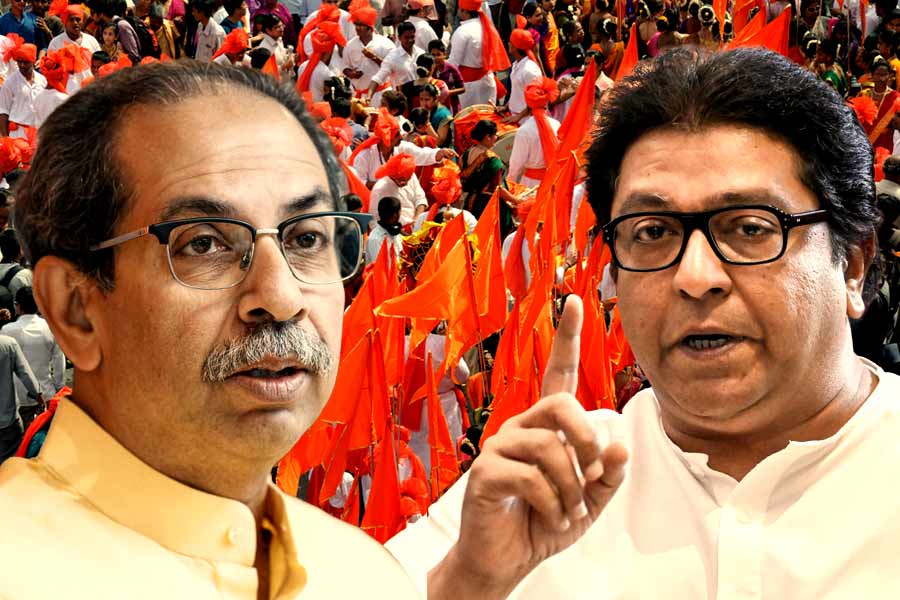Uddhav Thackeray (Shiv Sena UBT) and Raj Thackeray (MNS)—political rivals for over 20 years—have joined forces for joint protests, drawing attention to the broader implications of Hindi imposition
The controversy over Hindi imposition has escalated sharply in India’s political landscape. Sparked by the Maharashtra government’s plan to mandate Hindi as a third language in primary schools (Classes 1–5), multiple regional parties, leaders, and activists have united in strong opposition. The issue has ignited a nationwide debate over linguistic diversity and federal rights—one that could reshape future policy.
What Is the Hindi Imposition Issue?
Under the National Education Policy (NEP) 2020’s three-language formula, states are required to include a third language alongside regional and English-language instruction. Recently, Maharashtra’s Mahayuti government announced that Hindi would be mandatory in Marathi- and English-medium schools for students in Classes 1–5 starting academic year 2025–26. This move has sparked mass protests and heated political disputes across the state.
State Protest: Education Leaders Speak Out
Maharashtra’s educational authorities have been quick to respond. Rahul Rekhawar, Director of SCERT, warned that the sudden inclusion of Hindi under the two-language formula could hinder students’ academic progress, particularly in rural areas. In response, the state has temporarily halted implementation amid stakeholder feedback and expert consultations.
Regional Leaders and Protests Unite
A rare alliance has formed in opposition to the policy:
- Uddhav Thackeray (Shiv Sena UBT) and Raj Thackeray (MNS)—political rivals for over 20 years—have joined forces for joint protests, drawing attention to the broader implications of Hindi imposition
- Sharad Pawar, head of NCP(SP), supports the protest but opposed pressuring celebrities like Sachin Tendulkar into political debates over Hindi imposition
- Even BJP minister Ashok Uike declared he would only speak in Marathi and refused Hindi at public forums, calling the mandatory Hindi step a cultural affront.
Political Responses Across India
Tamil Nadu’s leaders have strongly criticized the central government’s push as Hindi imposition, calling it a federal overreach and a threat to regional autonomy. The Centre’s enforcement of the policy by withholding education funds has further inflamed tensions .
Union Home Minister Amit Shah denied Hindi imposition, framing Hindi as a “link language” and promoting all Indian languages equally.
Broader Language Politics & Federalism
The Hindi imposition controversy reflects India’s ongoing language politics battling issues of federalism and cultural identity. States in South India—Tamil Nadu, Karnataka, Kerala, and Telangana—have opposed other-language mandates, valuing their linguistic heritage over national language policies .
Telangana CM Revanth Reddy, while noting that he learned Hindi voluntarily to engage politically, criticized forced imposition on regional populations.
Why This Matters
- Educational Equity: Mandating Hindi may disadvantage non-native speakers in early years, affecting learning outcomes.
- Federal Autonomy: Regional governments assert their right to design curriculum aligned with cultural needs.
- Political Polarization: The opposition versus the NEP policy is straining Centre-State relations.
- Cultural Resurgence: This moment underscores a revived focus on preserving linguistic diversity.
Government Response & Next Steps
- Maharashtra has paused mandatory implementation and initiated broad stakeholder consultation including literary figures and policy experts.
- The Centre, asserting Hindi is not being imposed, continues support for the three-language approach to foster national cohesion.
- Regional bodies like Tamil Nadu’s government have pushed back, demanding policy respect and autonomy .
Conclusion
India’s latest Hindi imposition controversy captures a defining moment in its democratic evolution. Beyond language, it’s essentially about preserving regional identity and balancing national unity. As protests, policy evaluations, and political tension unfold, the future of multilingual education hangs in the balance. This issue goes well beyond schools—it touches the heart of India’s federal spirit.
Recent Post …..

